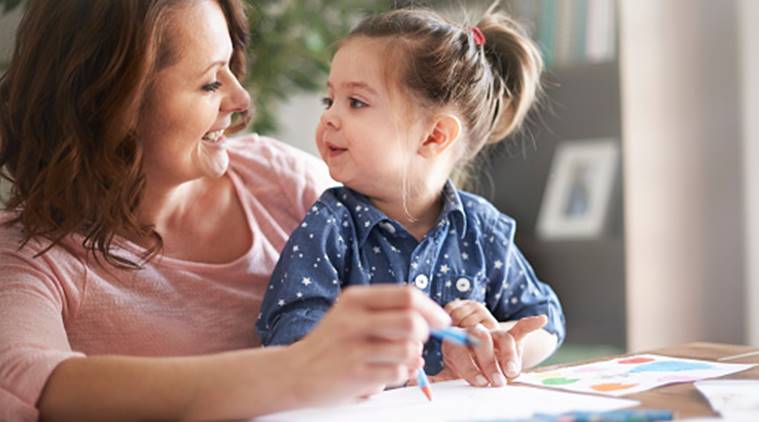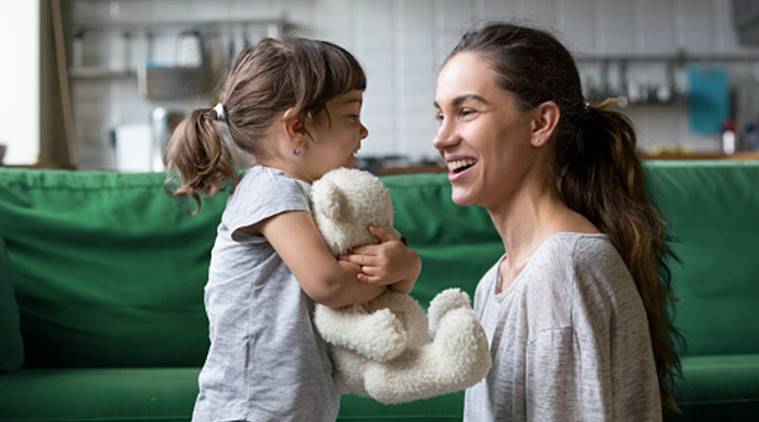
The child is inherently looking for their parents' love and approval. They believe that by imitating their parents, they would win their parents' love. It is, therefore, very important that we have the right habits ourselves.

By Vaibhav Datar
Actions do speak louder than words! Body language, gestures, facial expressions are unspoken elements of communication which no doubt describes the etiquette of an individual. Perfect body language is about complementing spoken words and enhancing their credibility, thus helping you express your thoughts more efficiently. It requires nothing more than our power of expression, perception and fluency. So let us give our children an important advantage by teaching them how to communicate not only through words but also by action.
I agree that it is not a simple task. Since our childhood, we are taught to pick up and understand nonverbal signals, which reveal certain feelings and emotions. How many times were we told as a child to stand straight, keep our spine erect and walk with confidence? How many times were we asked to speak with clarity and have a firm handshake?
Even today as parents, we might miss an opportunity to express a good gesture and body language. We can never know what opportunities we may have missed out on because of bad body language.
Importance of body language in our children
Presentation skills is everything. Our children must learn to create a good impression in their family, school and their social life, to make their presence felt. Even the smallest gestures they do unintentionally releases a message to others. We, as parents, must know that a positive body language in child is capable of cracking any difficult communication in life.

A good body language and posture opens up brain cells, keeps you fresh and active. It opens up your lungs, so you take in more oxygen. More oxygenated blood means brain can work with improved efficiency.
A good body language helps retention and memory. Children will be able to retain more of what they study and increase their memory power. And, most importantly, it builds confidence in children.
So let us see, how we can teach positive body language skills to our children in the early stages of their lives.
Children learn by looking at their parents, neighbours and teachers. They are very good at observation. Our children are ultimately very similar to us. If we have typical habits, for example, how we talk or walk, they are likely to imitate the same. The child is inherently looking for their parents’ love and approval. They believe that by imitating their parents, they would win their parents’ love. It is, therefore, very important that we have the right habits ourselves. Else it would be very difficult to correct our child.
We need to ensure that we have the correct posture, whether we are reading a newspaper or watching a movie. We may be just standing or walking, but we have to be aware of our body language.
Habits to avoid for parents
– No smoking in front your child.
– Passing no negative comments about any other person to a member of your family in front of your child.
– Avoid unnecessary fights as a couple.
– No abusive language should be used front of your child.
– No binge eating or alcohol abuse in front of your child.
– Don’t spend money unnecessarily in front of your child.
– Parents should not take up any physical abusing fight.
– Never physically abuse your child.
Teach your kids these values
– The sense of gratitude.
– Waking up early morning and practicing yoga.
– Praying and thanksgiving.
– Sit with them while they are studying.
– Concentration exercises.
– How to communicate with friends and family members.
– How to love and take care of one another.
– Engage them in sports or dance.
– To do things more on a conscious rather than being subconscious level.
Children are intelligent
Don’t teach them, show them! Give them a positive role model to follow, which will change their perception of life. Be it a celebrity or a parent, ask them to closely observe their role model and follow their life goals, the way they communicate with people using actions, study their body language, facial expressions thoroughly, their routine, how much they are focused in their career, so that they try to pick up those behaviour traits.
Play a dinner table game
Dinner is the best time to connect with your child. We can play question and answer games, trivia and quiz with respect to body language. This could also be the time to discuss the importance of good posture.
Maintain appropriate distance
Teach your child not to get too close to their friends physically. It can intimidate them or make them uncomfortable. Also make them understand standing too far away can make them feel insulted. One-arm distance is ideal and can be applied.
Stop rolling your eyes
Teach your child to look straight at the eyes of the person they are talking to. Rolling one’s eyes shows that the person is not genuine and is sceptical about his own thoughts.
(The writer is a midlife coach and author of Simplify Your Life.)
Source: Read Full Article